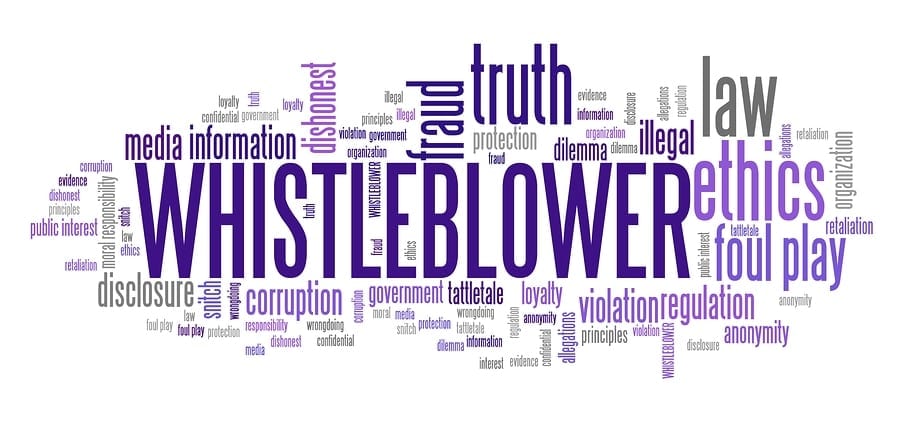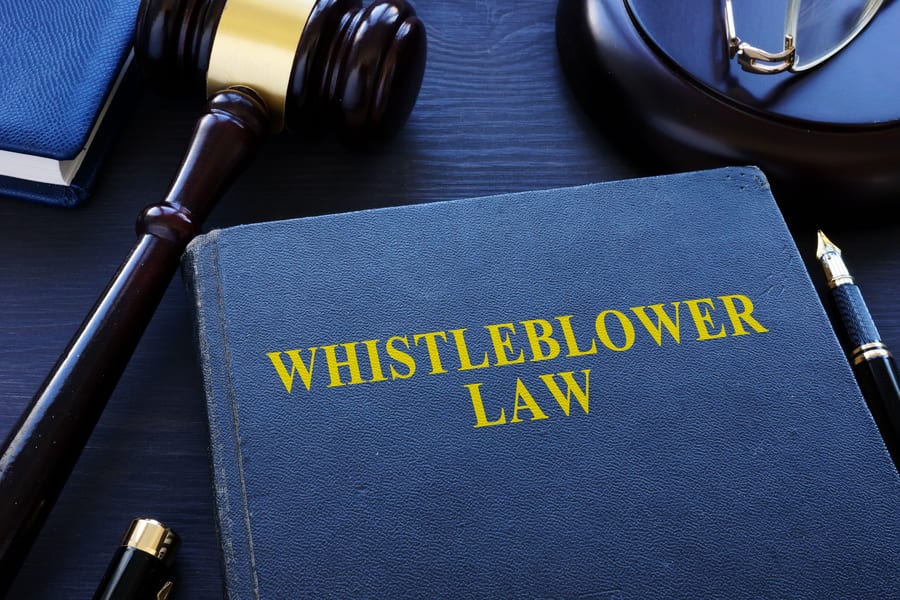Whistleblowers and the Whistleblower Protection Act

Many federal employees enjoy their jobs and have not witnessed illegal, unethical, or otherwise illicit behavior in the workplace. Others have witnessed conduct that they believe is egregious enough to be reported to a superior authority such as a supervisor, manager executive, or law enforcement official. While some superiors may take the reported misconduct seriously, others may choose to retaliate against the federal employee who blew the whistle (the “whistleblower”) on misconduct and behavior that should not be welcome in any workplace.
Examples of Conduct and Behavior Reported by Whistleblowers
Numerous activities may be considered bad enough to be reported to superiors or even law enforcement officials. Such activities include, but are not limited to, the following:
- Fraud;
- Money laundering;
- Sexual harassment or abuse;
- Verbal abuse;
- Conduct that may be harmful to human health and safety;
- Misuse of company resources; and
- Embezzlement.
Most of these examples include money, and money crimes are extremely serious in the United States where offenders face substantial jail time and hefty fines. As such, many employees may be hesitant to report behavior that is not in compliance with internal policies and procedures, some state laws, and federal laws for fearful of what may happen to them or their jobs.
Examples of Retaliation Against Whistleblowers
Whistleblowers who take a risk and report misconduct to their superiors or law enforcement face harsh consequences, even when there are laws that protect them. Examples of retaliation against whistleblowers include, among others, the following:
- Demotion;
- Reassignment to another division;
- Termination;
- Harassment;
- Spreading rumors;
- Unequal pay with another employee who performs the same job duties and has the same level of experience; and
- Threats of job loss or physical harm.
Being terminated can be detrimental to a steady source of income, which is one reason why rampant misconduct in the workplace often goes unreported. Therefore, whistleblowers should understand their rights under the law.
Protections Under the Whistleblower Protection Act (WPA)
The Whistleblower Act (WPA), which was enacted in 1989, provides protection to federal employees who expose illegal and unethical behavior. An agency cannot take action that is considered retaliatory against the whistleblower for doing the right thing – reporting intolerable behavior. The United States Office of Special Counsel (OSC) oversees whistleblower cases where federal employees have faced retaliation.
The WPA also applies to private-sector employees of contractors and sub-contractors of the federal government, even though these employees do not actually work for the government. Additionally, some states may have laws that protect state government employees as well as employees who work in the private sector. Because states have differing laws, it is important to speak with an attorney if you believe your state’s laws protect your rights as a whistleblower.
Contact the Vaughn Law Firm Today to Schedule Your Consultation
If you have reported illegal or illicit behavior to your superiors and have fallen victim to retaliation, or you wish to report something and have questions about your rights as a whistleblower, you should act quickly to speak with a Federal Employment Law Attorney. With offices in Washington, D.C., and Decatur, Georgia, the Vaughn Law Firm represents whistleblowers who have suffered the consequences of doing the right thing. If you would like to discuss your situation with one of our attorneys or have questions about the whistleblower process, contact the Vaughn Law Firm today by calling toll-free at (877) 615-9495 to schedule your consultation. You may also contact us online and we will respond to your inquiry right away.




